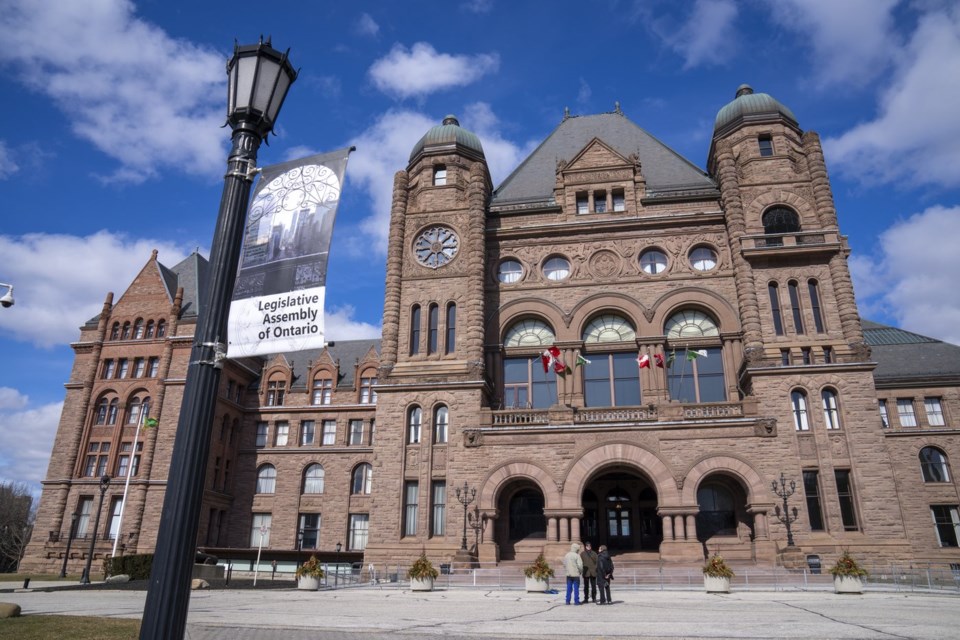As the Ontario legislature considers a bill that would give municipal councils the power to remove misbehaving and unethical members, some critics say the proposed legislation has serious flaws that must be addressed to ensure accountability.
The Progressive Conservative government's bill seeks to standardize municipal codes of conduct and give councils the power to vote on vacating the seat of a councillor who has violated the code.
For years, municipalities have voiced the need for updated laws to deal with problematic councillors.
Under current rules, municipalities establish their own codes of conduct and appoint an integrity commissioner, said John Mascarin, a partner at Aird & Berlis in Toronto who specializes in municipal law.
Mascarin was among members of the public who highlighted their concerns about the proposed bill during the province's committee consultations last month. He explained that if a councillor is accused of violating the code under the current system, the municipal integrity commissioner investigates and provides a report to council, which can then vote on one of two possible penalties: a reprimand or a suspension of pay for up to 90 days.
Proposed changes would allow the municipal commissioner to recommend the removal of a councillor to the provincial integrity commissioner, who can then perform their own assessment and potentially make the same recommendation. The removal would then require a unanimous vote by the other members of council – a step Mascarin called “fatally flawed.”
The councillor recommended for removal would only have to find one person "that's going to align with them to save their seat,” said Mascarin.
“My view is I doubt that anyone will ever be removed under this proposal if it becomes law," he said.
The proposed bill comes after several years of municipalities calling for such changes to address workplace harassment and allow for stricter penalties. The Association of Municipalities of Ontario said in its submission to the bill consultation that it supports the measure but recommends the unanimous vote requirement be changed to a supermajority and a range of discipline options be put in place aside from removal from office.
Pickering Mayor Kevin Ashe has been a prominent supporter of the bill after a member of his council was embroiled in misconduct allegations and handed multiple 90-day pay suspensions.
The conflict in the city east of Toronto that began more than a year ago involved multiple complaints against Coun. Lisa Robinson, including accusations of homophobia and racism and her repeated appearances on right-wing media platforms.
Robinson, who has denied allegations against her, told a committee consultation in July that while parts of the proposed legislation are necessary and overdue, it lacks an appeal process and independent adjudicator.
Speaking at the same consultation, Ashe asked the committee to consider expediting the process and adding other forms of sanctions, and also suggested an independent judicial decision.
“I'm very hopeful that the bill will move forward so that there will be an opportunity for higher levels of scrutiny, greater ability for sanctions and then ultimately the ability of the greatest sanction, which is the removal of a councillor from office,” Ashe said in a phone interview last month.
Democracy Watch co-founder Duff Conacher said the bill is “just a few baby steps in the right direction" since it would uphold the province’s current system of having municipalities appoint their own local integrity commissioners, which he called “conflict-ridden” in itself.
Conacher suggested that the provincial integrity commissioner be tasked with investigating complaints against local councillors and imposing penalties, similar to how the provincial privacy commissioner oversees municipal information laws.
“When you're having the provincial parties choose the watchdog for municipalities, then you have that separation where no municipal politician is involved in the choice,” Conacher said in an interview.
“Politicians should never be judging other politicians in any way because they're unfit to do that because of their political biases."
Conacher added that another method of accountability could see complaints referred to a judge to ensure decisions are made independently from municipal officials, a measure Mascarin said he supports.
Natasha Salonen, mayor of Wilmot Township near Kitchener, applauded the province’s push for more accountability but said there’s little support in place for elected officials who are affected by the misconduct of their peers.
She told the consultation committee she'd like to see a human resources system for municipalities, potentially through Ontario’s ombudsman or the public service commission, that could help address such complaints.
“Having bills and legislation like this passed help ensure that there is accountability and civility for the people who are running to represent our voices in our country,” Salonen said in a phone interview.
Salonen noted that overturning the public’s vote by removing someone from office should not be taken lightly, and underscored the need for thorough investigations and supports when there are allegations of misconduct.
Public office “is a place to serve and not a place for suffering,” she said.
She added that the political sphere is much different than it was when the current municipal rules were enacted more than 20 years ago, and there's more polarization and public discourse in local politics.
“I think that this underlines that Ontario can lead by example by stating conduct matters,” she said. “Respect is non-negotiable.”
This report by The Canadian Press was first published Aug. 8, 2025.
Rianna Lim, The Canadian Press


